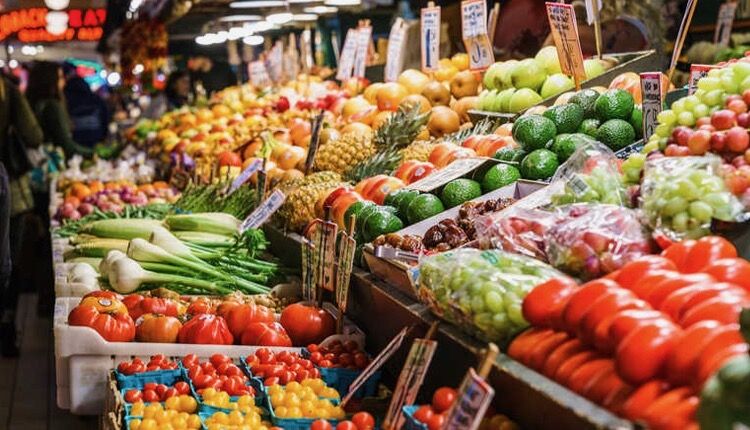Egypt’s agricultural sector is making headlines globally, as highlighted in a recent report by the Ministry of Agriculture and Land Reclamation.
From January to mid-October 2024, the country exported over 6.9 million tons of agricultural goods.
These exports generated an impressive USD 4.04 billion (EGP 196.3 billion) in revenue,a remarkable increase of nearly USD 1 billion compared to the same period last year.
This data, shared by Alaa Farouk, Minister of Agriculture and Land Reclamation, reflects Egypt’s steady ascent in international markets.
The Stars of Egypt’s Agricultural Exports
Egypt’s produce is turning heads worldwide, with citrus fruits leading the charge.
According to the Ministry of Agriculture and Land Reclamation, over 2.27 million tons of citrus were exported in 2024, solidifying their position as a global favorite.
Close on their heels are potatoes, with exports reaching 973,130 tons this year. This figure highlights their increasing popularity, especially in European and Gulf markets.
Onions also made a strong showing, contributing 281,785 tons to the export tally. These staple vegetables are an essential part of cuisines globally, and their demand continues to grow.
Beyond these top performers, Egypt’s export basket includes a variety of crops such as beans, grapes, sweet potatoes, mangoes, and pomegranates.
This diversity, as documented by the Ministry of Agriculture and Land Reclamation, underscores the country’s ability to meet varied global preferences
Aiming Higher: USD 9.2 Billion by 2024’s End
Egypt isn’t stopping with today’s milestones. The Ministry of Agriculture and Land Reclamation has set an ambitious target: reaching USD 9.2 billion (EGP 446.2 billion) in agricultural export revenues by the end of 2024.
Breaking this down, USD 4.2 billion (EGP 203.9 billion) is expected to come from fresh produce, while USD 5 billion (EGP 242.9 billion) will stem from processed and frozen goods.
These projections show Egypt’s commitment to not only increasing export volume but also enhancing value through higher-margin products, as emphasized in official reports.
The Case for Quality
According to the Ministry of Agriculture and Land Reclamation, Egypt currently exports to 165 countries, including key markets in Europe, the Gulf, Africa, and the Americas.
While these numbers are impressive, maintaining and expanding this footprint will depend on prioritizing quality over quantity.
Global consumers demand fresh, safe, and sustainably grown produce, and Egypt is uniquely positioned to deliver on these expectations.
By focusing on quality, Egyptian farmers and exporters can build a reputation that ensures lasting trust and loyalty in international markets
Teamwork Across the Sector
The success of Egypt’s agricultural exports, as noted by the Ministry of Agriculture and Land Reclamation, is the result of collaboration across the sector.
- Farmers play a pivotal role by cultivating crops that meet the highest standards.
- Exporters ensure that products are transported efficiently, preserving freshness and quality.
- Regulators oversee compliance with international standards, providing the necessary certifications for global trade.
Together, these efforts create a seamless process that showcases the best of Egypt’s agriculture to the world.
Why Quality Matters More Than Ever
The Ministry of Agriculture and Land Reclamation highlights that the global market for agricultural products is becoming more competitive.
Today’s consumers are not only looking for affordable options but also for produce that stands out in terms of taste, safety, and sustainability.
Egypt’s emphasis on quality isn’t just about meeting current demands; it’s about securing a place in new markets and strengthening relationships with existing buyers.
This approach ensures resilience in the face of changing global trends and positions Egyptian exports as a premium choice.
Opportunities and Challenges Ahead
The data shared by the Ministry of Agriculture and Land Reclamation reveals not only opportunities but also the challenges facing the sector. Issues like water scarcity and climate change require innovative solutions.
- Sustainable farming practices can help conserve resources while maintaining productivity.
- Investments in agricultural technology can enhance efficiency and reduce waste.
- Research and development can introduce crop varieties better suited to changing environmental conditions.
These initiatives are vital to turning challenges into stepping stones for growth.
More Than Just Business
Every ton of produce exported from Egypt tells a story—not just of economic progress but of the people behind the scenes.\
The statistics provided by the Ministry of Agriculture and Land Reclamation represent the dedication of countless individuals, from farmers and logistics teams to policymakers.
These exports are a source of national pride, showcasing the richness of Egypt’s agricultural heritage and its capacity to adapt and excel.
Conclusion
As the Ministry of Agriculture and Land Reclamation confirms, Egypt’s agricultural exports are not just about impressive numbers; they represent a larger vision of growth, sustainability, and quality.
By focusing on meeting international standards and fostering collaboration across the sector, Egypt is paving the way for long-term success.
With ambitious targets for 2024, the country is showing the world that it’s not just about how much it exports but how well it delivers.
Source: Data and statistics sourced from the Ministry of Agriculture and Land Reclamation, Egypt.
